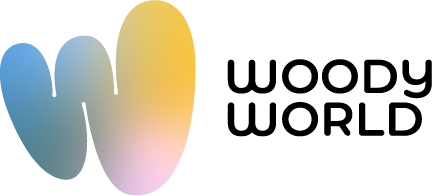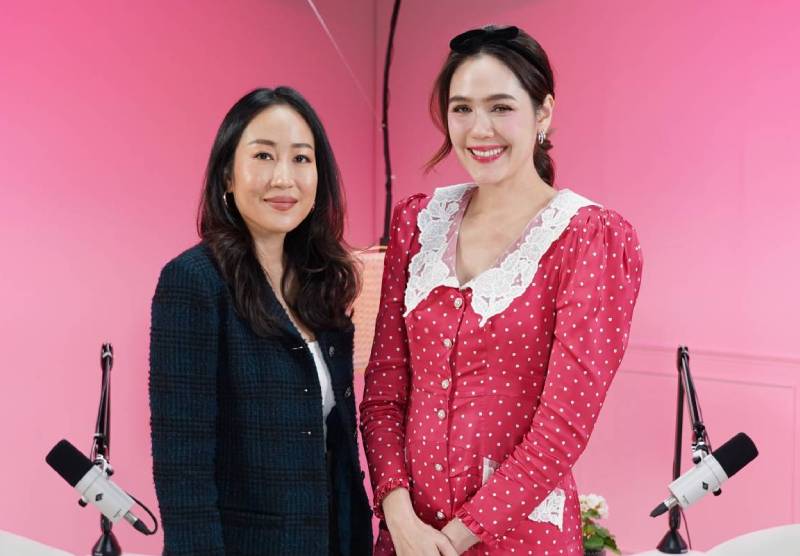How well do you know yourself? This week on On the Way with Chom, we’ll meet Nee Chalisa, a consultant specializing in astrology, deep psychology, and energy therapy. She’ll decode the stars, opening the door to a deeper understanding of yourself and a balanced life for both body and mind.
What is the starting point and what are you doing today?
Nee Chalisa: Let me first explain that my full-time job is building a community, overseeing Wonderfruit’s wellness division. However, my personal work is helping people better understand themselves, like a personal consultant. I use many disciplines, but this time, I’ll talk about astrology. Astrology is the study of the movement of the stars, and it’s Western astrology. This astrology combines with understanding the position of the stars to align with a person’s personality, identity, temperament, and even their inner energy, creative potential, and even their inner strengths and weaknesses. I’m trying to understand what’s really hiding inside, and how I can harness this energy to create the best for them.
Is astrology complicated?
Nee Chalisa: Actually, it’s a bit complicated. But because no two people are alike, everyone is born with their own energy. That energy can indicate their personality and character. For example, if we were born, we would have our birth date, month, year, and time in Western astrology. We would look at the position of the stars at the moment of our birth and how that position affects us. It affects our personality, our future, and even our life on this planet. We would think that if our human spirit were our energy, we would understand that if we were born in June, we would either have Cancer or possibly Gemini.
In terms of astrology, whether it’s Thai, Hindu, or Chinese, international calculations differ. But in terms of using it based on psychology, it’s universal astrology. So, let’s say we were born under the sign of Cancer, we’re not just born with the Sun. But if we look at the chart we call our nature chart, we’ll see the foundation of all the stars. The moment we’re born, it’s like a snapshot. It’s the elements—in fact, all the elements that make up us. If we understand ourselves like this, it’s like our identity becomes separate from our understanding of who we are. If we’re angry, why are we angry like this? But if we understand the stars, we’ll see where our anger really comes from.
Does this mean that each star may have an effect on us?
Nee Chalisa: Yes, it is an energy that is connected like us and the stars are actually one.
Do people who want to do this have any issues or doubts? Do they have any issues? Or can they be anyone? Are there any limitations?
Nee Chalisa: Our coming here seems to have some purpose for our birth. The most important thing is to get to know ourselves. Knowing ourselves and knowing about ourselves are not the same. Knowing ourselves means truly knowing ourselves without any preconditions. It’s when we enter and are able to be happy by ourselves, understanding our own essence. But knowing ourselves is something most people, all of us, know like this. For example, we know about ourselves—what our career is, our name, our parents’ names, our pets’ names, what our family is like. But when we use the term “self-discovery,” it means we truly discover ourselves, what our core lies within. This then builds upon our talents, our direction in life, our chosen path, our desired career, or even our studies. It’s like every stage of life has a turning point, and that turning point is the point at which we sometimes question what we were born here for, what we’re here for. Some people already know this, while others may not.
Therefore, it’s believed that the spark that sparks someone to begin to understand themselves or to begin to be interested in understanding themselves must have at some point changed. Why is our life like this? Why are things we’ve discovered, encountered, or along the way starting to deviate? Why are we starting to feel unhappy? Actually, it’s primarily about happiness. Happiness and balance. I believe that when it comes to energy these days, we talk a lot about it. If you start to notice, you’ll see that over the past 5-6 years, we’ve heard the word “self” a lot. In the world of wellness, in the world of self-understanding, there’s self-love, self-care, and self-discovery. Coming back to love ourselves, coming back to understand ourselves, taking care of ourselves, getting to know ourselves. This kind of self-knowledge means that everyone is now beginning to realize that our own identity is most important. We don’t always rely on external factors. As long as we don’t know ourselves, our lives will have energy that radiates outward. When we radiate outward, we can’t control external situations. When something happens inside, we become disorganized because everything is impacting us. If we’re strong inside, we’ll be able to get through various events in life. It’s the same with self-love, taking care of ourselves, where everyone gets up and exercises to understand themselves better. Good health comes from within us.
What do most people who come here come for?
Nee Chalisa: Most people have a turning point. They ask themselves, “After a while on this journey, why does it feel like something is bothering them, their deepest feelings are starting to question them?” As I said, when you have questions, you might sometimes want help, someone you can turn to for advice. For example, with work issues, family problems, or even when you wake up and wonder, “What am I doing here?” If we cut out everything, including everything we know about ourselves, what can we find happiness with? Self-discovery involves discovering ourselves first. Once we’ve discovered this, how can we understand ourselves? It’s like a path. It’s like brushing everything off to make way for the path. Once we’ve discovered ourselves, we gradually embark on that path to understand ourselves.
For example, what did we discover? How did we extract it?
Nee Chalisa: Astrology allows us to discover ourselves. There are many ways for us to classify it. Astrology is divided into 12 channels according to the principles of universal astrology. If we delve deeper, these 12 rooms will reveal meaning. We will look at the position of the stars and see which room each star was in at the time of birth. For example, Room 1 is about our identity, our personality traits. Room 2 is about finances, what we have and what we own. Room 3 is about communication and travel. Room 4 is about family. This is the most basic meaning. If we look at it in terms of going deeper into the spiritual level, the meanings will be different. For example, Room 4 might mean the deepest point inside us. What is our inner spirit and what is our deepest point?
Suppose we have the day, month, year of birth, and time of birth, but the interpretation that helps us understand can be either superficial or deeper. Perhaps we need to delve deeper through therapy or something?
Khun Nee Chalisa: Yes, it can be through therapy or through the stars. We can combine many different disciplines. Once we know what kind of energy we have, it’s up to us to decide how we want to heal ourselves.
Can we defy fate or the power of the stars?
Nee Chalisa: The stars are us, and we are the stars. Therefore, if we say we’re going against the stars, we’re going against our own nature. If we understand that the stars are our nature, we won’t see the stars as objects floating aimlessly in the sky. Instead, they are a form of energy that reflects our own nature.
What kind of experience do people who come to see you usually have?
Nee Chalisa: Most people have questions in their minds beforehand. Some feel they have certain traits they don’t understand, such as fear, a lack of confidence, or a reluctance to refuse someone, even though they’re actually uncomfortable but can’t express it. Then they slowly explain their experiences, gradually reviewing them together. Nee’s approach to astrology isn’t about simply sitting and making predictions for people to listen to. It’s not about asking if they’re accurate, but about sitting down and talking, creating a space for the person to discover themselves through their own stars. We simply tell them, suggesting that they pursue what we feel is right for them. It turns out it’s incredibly effective, and they’re more than willing to express themselves through communication.
Has there ever been any feedback that astrology is like superstition or fortune telling?
Nee Chalisa: I must first say that in our country, we use the word “mu” and each person interprets it differently. When we talk about “mu telu,” we tend to focus on what we believe, not what we can’t see. But what I’m sharing today is astrology that’s based on understanding ourselves in terms of personality, with a mix of psychology. Whether or not to believe in mu depends on how we view it, what we believe in, and how we conduct ourselves through these disciplines.





